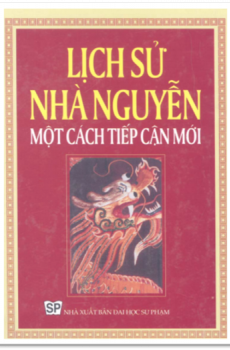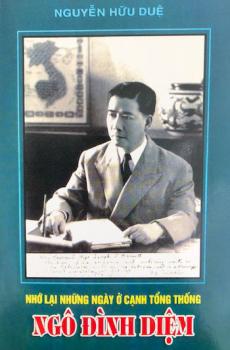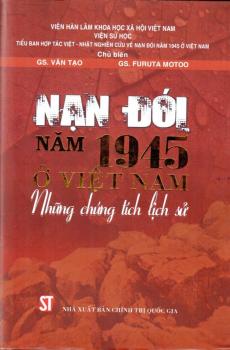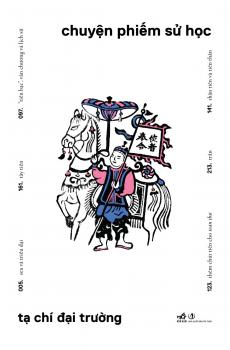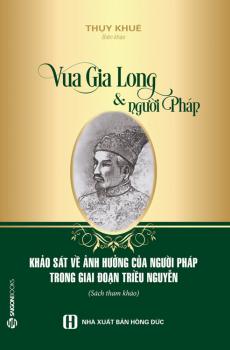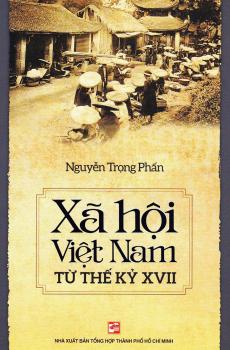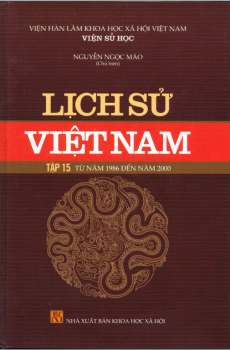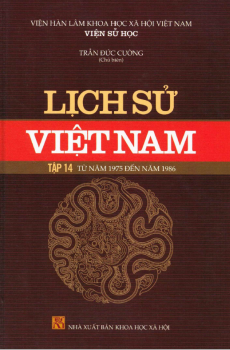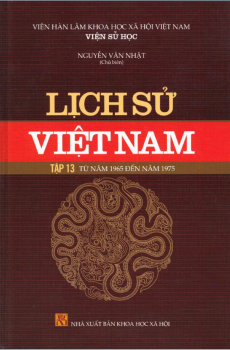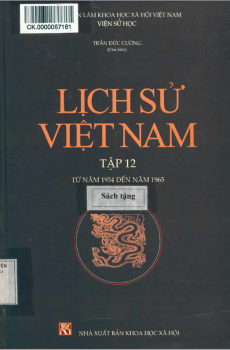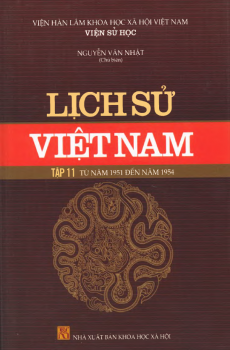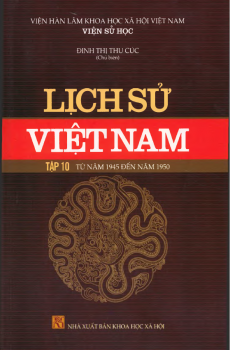Beacon Lights of History, Volume XI
Beacon Lights of History, Volume XI
Log in to download this book.
| Publisher | unknown |
|---|---|
| Accessible book producer | Public domain |
| Published year | 2004 |
| Coppy right | Chưa rõ |
***START OF THE PROJECT GUTENBERG EBOOK BEACON LIGHTS OF HISTORY, VOLUME XI***
E-text prepared by Juliet Sutherland, Charlie Kirschner,
and the Project Gutenberg Online Distributed Proofreading Team
LORD'S LECTURES
BEACON LIGHTS OF HISTORY.
BY JOHN LORD, LL.D.
AUTHOR OF "THE OLD ROMAN WORLD," "MODERN EUROPE," ETC., ETC.
VOLUME XI.
AMERICAN FOUNDERS.
PUBLISHERS' PREFACE.
Dr. Lord's volume on "American Statesmen" was written some years after the issue of his volume on "Warriors and Statesmen," which was Volume IV of his original series of five volumes. The wide popular acceptance of the five volumes encouraged him to extend the series by including, and rewriting for the purpose, others of his great range of lectures. The volume called "Warriors and Statesmen" (now otherwise distributed) included a number of lectures which in this new edition have been arranged in more natural grouping. Among them were the lectures on Hamilton and Webster. It has been deemed wise to bring these into closer relation with their contemporaries, and thus Hamilton is now placed in this volume, among the other "American Founders," and Webster in the volume on "American Leaders."
Of the "Founders" there is one of whom Dr. Lord did not treat, yet whose services--especially in the popular confirmation of the Constitution by the various States, and notably in its fundamental interpretation by the United States Supreme Court--rank as vitally important. John Marshall, as Chief Justice of that Court, raised it to a lofty height in the judicial world, and by his various decisions established the Constitution in its unique position as applicable to all manner of political and commercial questions--the world's marvel of combined firmness and elasticity. To quote Winthrop, as cited by Dr. Lord, it is "like one of those rocking-stones reared by the Druids, which the finger of a child may vibrate to its centre, yet which the might of an army cannot move from its place."
So important was Marshall's work, and so potent is the influence of the United States Supreme Court, that no apology is needed for introducing into this volume on our "Founders" a chapter dealing with that great theme by Professor John Bassett Moore, recently Assistant Secretary of State; later, Counsel for the Peace Commission at Paris; and now occupying the chair of International Law and Diplomacy in the School of Political Science, Columbia University, New York City.
NEW YORK, September, 1902.
CONTENTS.
PRELIMINARY CHAPTER.
THE AMERICAN IDEA.
Basis of American institutions
Their origin
The Declaration of Independence
Duties rather than rights enjoined in Hebrew Scriptures
Roman laws in reference to rights
Rousseau and the "Contrat Social"
Calvinism and liberty
Holland and the Puritans
The English Constitution
The Anglo-Saxon Laws
The Guild system
Teutonic passion for personal independence
English Puritans
Puritan settlers in New England
Puritans and Dutch settlers compared
Traits of the Pilgrim Fathers
New England town-meetings
Love of learning among the Puritan colonists
Confederation of towns
Colonial governors
Self-government; use of fire-arms
Parish ministers
Religious freedom
Growth of the colonies
The conquest of Canada
Colonial discontents
Desire for political independence
Oppressive English legislation
Denial of the right of taxation
James Otis and Samuel Adams
The Stamp Act
Boston Port Bill
British troops in Boston
The Battle of Lexington
Liberty under law
BENJAMIN FRANKLIN.
DIPLOMACY.
Birth of Franklin
His early days
Leaves the printer's trade
Goes to Philadelphia
Visit to England
Returns to Philadelphia
Prints a newspaper
Establishes the "Junto"
Marries Deborah Reid
Establishes a library
"Poor Richard"
Clerk of the General Assembly
Business prosperity
Retirement from business
Scientific investigations
Founds the University of Pennsylvania
Scientific inventions
Franklin's materialism
Appointed postmaster-general
The Penns
The Quakers
Franklin sent as colonial agent to London
Difficulties and annoyances
Acquaintances and friends
Returns to America
Elected member of the Assembly
English taxation of the colonies
English coercion
Franklin again sent to England
At the bar of the House of Commons
Repeal of the Stamp Act
Franklin appointed agent for Massachusetts
The Hutchinson letters
Franklin a member of the Continental Congress
Sent as envoy to France
His tact and wisdom
Unbounded popularity in France
Embarrassments in raising money
The recall of Silas Deane
Franklin's useful career as diplomatist
Associated with John Jay and John Adams
The treaty of peace
Franklin returns to America
His bodily infirmities
Happy domestic life
Chosen member of the Constitutional Convention
Sickness; death; services
Deeds and fame
GEORGE WASHINGTON.
THE AMERICAN REVOLUTION.
Washington's origin and family
His early life
Personal traits
Friendship with Lord Fairfax
Washington as surveyor
Aide to General Braddock
Member of the House of Burgesses
Marriage, and life at Mount Vernon
Member of the Continental Congress
General-in-chief of the American armies
His peculiarities as general
At Cambridge
Organization of the army
Defence of Boston
British evacuation of Boston
Washington in New York
Retreat from New York
In New Jersey
Forlorn condition of the army
Arrival at the Delaware
Fabian Policy
The battle of Trenton
Intrenchment at Morristown
Expulsion of the British from New Jersey
The gloomy winter of 1777
Washington defends Philadelphia
Battle of Germantown
Surrender of Burgoyne
Intrigues of Gates
Baron Steuben
Winter at Valley Forge
British evacuation of Philadelphia
Battle of Monmouth
Washington at White Plains
Benedict Arnold
Military operations at the South
General Greene
Lord Cornwallis
His surrender at Yorktown
Close of the war
Washington at Mount Vernon
Elected president
Alexander Hamilton
John Jay
Washington as president
Establishment of United States Bank
Rivalries and dissensions between Hamilton and Jefferson
French intrigues
Jay treaty
Citizen Genet
Washington's administrations
Retirement of Washington
Death, character, and services
ALEXANDER HAMILTON.
AMERICAN CONSTITUTION.
Hamilton's youth
Education
Precocity of intellect
State of political parties on the breaking out of the Revolutionary War
Their principles
Their great men
Hamilton leaves college for the army
Selected by Washington as his aide-de-camp at the age of nineteen
His early services to Washington
Suggestions to members of Congress
Trials and difficulties of the patriots
Demoralization of the country
Hamilton in active military service
Leaves the army; marries; studies law
Opening of his legal career
His peculiarities as a lawyer
Contrasted with Aaron Burr
Hamilton enters political life
Sees the necessity of a constitution
Convention at Annapolis
Convention at Philadelphia
The remarkable statesmen assembled
Discussion of the Convention
Great questions at issue
Constitution framed
Influence of Hamilton in its formation
Its ratification by the States
"The Federalist"
Hamilton, Secretary of the Treasury
His transcendent financial genius
Restores the national credit
His various political services as statesman
The father of American industry
Protection
Federalists and Republicans
Hamilton's political influence after his retirement
Resumes the law
His quarrel with Burr
His duel
His death
Burr's character and crime
Hamilton's services
His lasting influence
JOHN ADAMS.
CONSTRUCTIVE STATESMANSHIP.
The Adams family
Youth and education of John Adams
New England in the eighteenth century
Adams as orator
As lawyer
The Stamp Act
The "Boston Massacre"
Effects of English taxation
Destruction of tea at Boston
Adams sent to Congress
His efforts to secure national independence
Criticisms of the Congress
Battles of Lexington and Concord
Adams moves Washington's appointment as general-in-chief
Sent to France
Adams as diplomatist
His jealousy of Franklin
Adams in England
As vice-president
Aristocratic sympathies
As president
Formation of political parties
The Federalists; the Republicans
Adams compared with Jefferson
Discontent of Adams
Strained relations between France and the United States
The Alien and Sedition laws
Decline of the Federal party
Adams's tenacity of office
His services to the State
Adams in retirement
THOMAS JEFFERSON.
POPULAR SOVEREIGNTY.
Thomas Jefferson
Birth and early education
Law studies
Liberal principles
Practises law
Successful, but no orator
Enters the House of Burgesses
Marries a rich widow
Builds "Monticello"
Member of the Continental Congress
Drafts the Declaration of Independence
Enters the State Legislature
Governor of Virginia
Appointed minister to France
Hails the French Revolution
Services as a diplomatist
Secretary of state
Rivalry with Hamilton
Love of peace
Founds the Democratic party
Contrasted with Hamilton
Becomes vice-president
Inaugurated as president
Policy as president
The purchase of Louisiana
Aaron Burr
His brilliant career and treasonable schemes
Arrest and trial
Subsequent reverses
The Non-importation Act
Strained relations between France and the United States
English aggressions
The peace policy of Jefferson
The embargo
Triumph of the Democratic party
Results of universal suffrage
Private life of Jefferson
Retirement to Monticello
Vast correspondence; hospitality
Fame as a writer
Friend of religious liberty and popular education
Founds the University of Virginia
His great services
JOHN MARSHALL.
BY JOHN BASSETT MOORE.
THE SUPREME COURT.
The States of the American Union after the Revolution,
for a time a loose confederation, retaining for the most
part powers of independent governments.
The Constitution (1787-89) sought to remedy this and other defects.
One Supreme Court created, in which was vested the judicial power of the United States.
John Marshall, in order the fourth Chief Justice (1801-35), takes
pre-eminent part in the development of the judicial power.
Earns the title of "Expounder of the Constitution".
Birth (1755) and parentage.
His active service in the Revolutionary War.
Admitted to the bar (1780) and begins practice (1781).
A member of the Virginia Legislature.
Supporter of Washington's administrations, and leader of Federal party.
United States Envoy to France (1797-98).
Member of Congress from Virginia (1799-1800), and supporter of President Adams's administration.
Secretary of State in Adams's Cabinet (1800-01).
Chief Justice of the Supreme Court.
His many important decisions on constitutional questions.
Maintains power of the Supreme Court to decide upon the constitutionality of Acts of Congress.
Asserts power of Federal Government to incorporate banks, with freedom from State control and taxation.
Maintains also its power to regulate commerce, free from State hindrance or obstruction.
His constitutional opinion, authoritative and unshaken.
His decisions on questions of International Law.
Decides the status of a captured American vessel visiting her native port as a foreign man-of-war.
Sound decision respecting prize cases.
His views and rulings respecting confiscation of persons and property in time of war.
Personal characteristics and legal acumen.
Weight and influence of the Supreme Court of the United States.



